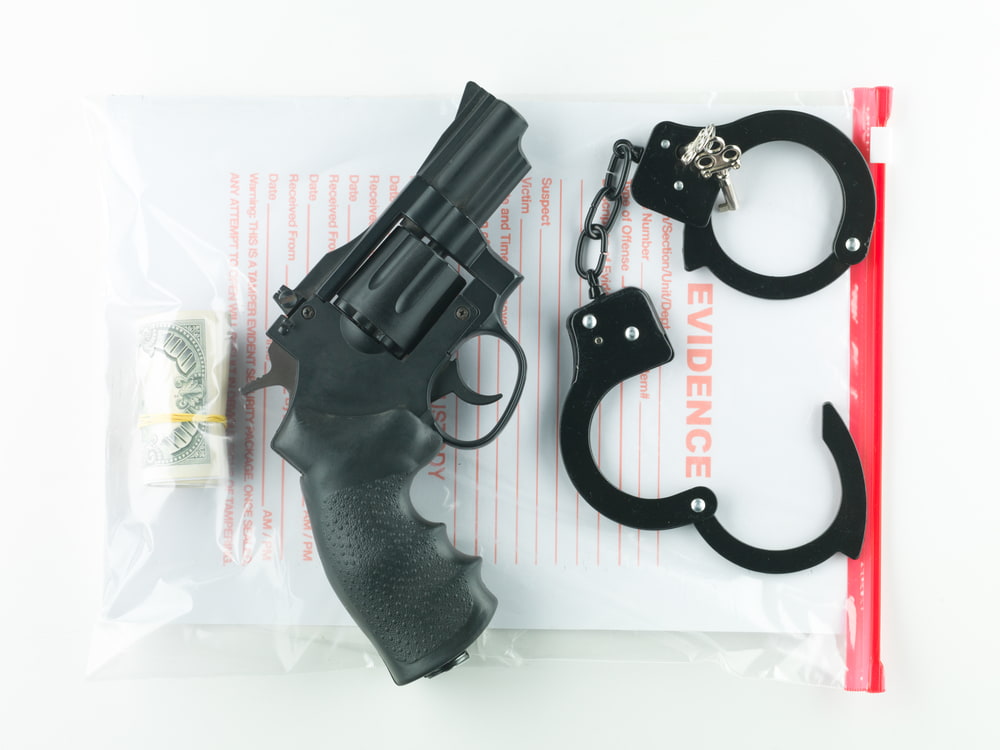What is a Felony?

What is a Felony? Under California law, a felony is any crime punishable by one year or more in custody. If the maximum penalty is less than one year, the crime is classified as a misdemeanor.
Felonies are the most severe type of crime. There are different levels of felonies, each carrying different prison terms. Regardless of which type of felony you are charged with, you must invoke your right to remain silent and contact your criminal defense attorney for help.
Quick Navigation Menu
What are the Penalties If You Are Convicted of a Felony?
In California, a felony offender can typically be sentenced to one of three definite terms of confinement. The judge has discretion to choose the term of imprisonment from the three sentencing options.
The three ways a felony can be sentenced are:
- Low term sentence
- Medium term sentence
- High term sentence
The amount of time in custody for a low term, medium term, and high term felony varies depending on the unique charge. The amount of prison time for a particular crime is usually listed by statute. For instance, the crime of Rape has a low term sentence of three years, a medium term sentence of six years, and a high term sentence of eight years.
If no prison terms are listed by statute for a particular felony, a catch-all sentencing statute (PC 1170) will likely apply. This provides low, medium, and high term prison terms for many felonies. These terms are 16 months, two years, or three years, respectively.
Even after release from prison, felonies usually come with an additional period of community supervision known as “parole.”
What Factors Can Impact a Felony Sentence in California?
When the judge is sentencing a felony offender, they will look at the list of definite prison terms provided by law. Then, they will examine mitigating and aggravating factors at play in the case.
For instance, if someone was seriously injured, this aggravating factor may result in a high term sentence. On the other hand, a mitigating factor (such as nobody being injured) can help push a sentence towards the low term.
 A criminal record can also lead to years being added to a sentence. For instance, under the Three Strikes Law, someone with two felony convictions can face a sentence of 25 to life if they are charged with a new serious felony. Additionally, a prior felony conviction can add five years to any of the sentence terms (this is known as an enhancer).
A criminal record can also lead to years being added to a sentence. For instance, under the Three Strikes Law, someone with two felony convictions can face a sentence of 25 to life if they are charged with a new serious felony. Additionally, a prior felony conviction can add five years to any of the sentence terms (this is known as an enhancer).
Sometimes different types of penalties, such as steep fines and felony probation, come into play at sentencing. These alternatives can sometimes be used to reduce the amount of time spent in prison, but not everyone is eligible for probation.
If you are facing more than one felony charge, you could also be facing additional time if you receive consecutive sentences. A consecutive sentence is a sentence in which you serve one sentence in its entirety, followed by the sentence for a different crime afterward. This is different from a concurrent sentence, where the clock starts running at the same time for multiple convictions.
Of course, only your lawyer can properly advise you about the specific penalties you are facing. Every felony charge is unique, so make sure to consult with an experienced criminal defense lawyer for help understanding your charges.
What are Some Common Felonies in Los Angeles?
There are many different felonies under California law. Some of the felonies commonly charged include:
- Vehicular manslaughter
- Rape and other sex crimes
- Murder / homicide
- Robbery
- Burglary
- Sale of a controlled substance
- Assault with a deadly weapon
- Kidnapping
All felony charges need to be taken very seriously. You must take full advantage of your constitutional rights, including the right to counsel, to fight the allegations against you.
What is a Wobbler?
In California, certain crimes can be charged as either a felony or a misdemeanor. This is called a wobbler. Only some felonies are wobblers.
The judge can also reduce a wobbler from a felony to a misdemeanor — if mitigating factors are present. They can do this upon a defense motion at the preliminary hearing, at sentencing, or after you have successfully completed felony probation.
Contact a Los Angeles Criminal Defense Lawyer for Help
Now you know more about felonies in Los Angeles, CA. If you are facing felony charges, contact a criminal defense attorney for help. An attorney will help you understand the nature of your charges and build a defense against them. They may even be able to negotiate with the prosecutor to have a wobbler charged as a misdemeanor instead of a felony. Or, they can fight for your rights at trial.
What is a Felony? – FAQ by a Los Angeles Criminal Lawyer
Q1: What is a felony?
A felony is a criminal offense that is more serious than a misdemeanor and is typically punishable by more severe consequences, including imprisonment in a state or federal prison, significant fines, or both.
Q2: What types of crimes are considered felonies?
Felony crimes include violent crimes such as murder, robbery, and child molestation (Penal Code). Other felony offenses encompass drug trafficking, serious theft, and certain white-collar crimes.
Q3: How does the California Penal Code define a felony?
Under the California Penal Code, a felony is a crime punishable by death or imprisonment in a state prison. Felony charges are considered the most serious crimes under state law.
Q4: What are the possible penalties for a felony conviction in California?
A California felony conviction can result in severe consequences such as life imprisonment, a state prison sentence, probation, community service, or a death penalty in extreme cases like first-degree murder.
Q5: What is felony probation?
Felony probation allows a convicted felon to serve their sentence under supervision in the community instead of in jail. Conditions may include drug or alcohol treatment, anger management counseling, and regular check-ins with a probation officer.
Q6: Can a felony conviction impact my future?
Yes, felony convictions can have long-lasting collateral consequences, including loss of voting rights, difficulty finding employment, and restrictions on owning firearms. A criminal record with a felony charge can significantly impact various aspects of your life.
Q7: What is the difference between state and federal felonies?
State felonies are prosecuted under state criminal statutes, while federal felonies are prosecuted under federal law. The federal government defines certain crimes as federal offenses, which are typically more serious and involve federal jurisdiction.
Q8: What is a preliminary hearing in a felony case?
A preliminary hearing is a court proceeding where a judge determines if there is sufficient evidence to proceed with felony charges. If the judge finds probable cause, the case moves forward in the court system.
Q9: What role does a criminal defense lawyer play in a felony case?
A criminal defense lawyer provides legal representation to the accused, ensuring their rights are protected, challenging the prosecution’s evidence, and striving to achieve the best possible outcome, whether it’s a dismissal, reduced charges, or a not guilty verdict.
Q10: Can a felony charge be reduced to a misdemeanor?
In some cases, a felony charge can be reduced to a misdemeanor through a legal process known as a “wobbler,” which depends on the specific circumstances of the case, the defendant’s criminal record, and the discretion of the trial court judge.
Q11: What happens if a convicted felon violates probation?
If a defendant violates probation, the court may revoke probation and impose the original jail sentence, which could include imprisonment in county jail or state prison.
Q12: Are all felony offenses eligible for probation?
Not all felony offenses are eligible for probation. Crimes such as violent felonies, serious sex crimes, and other severe felonies may result in mandatory prison sentences without the possibility of probation.
Q13: How do felony sentences vary?
Felony sentences vary based on the crime’s severity, aggravating factors, and the defendant’s prior criminal record. Sentences can range from minimal jail time to life imprisonment or even the death penalty.
Q14: What is the role of a grand jury in felony cases?
A grand jury reviews evidence presented by the prosecution to determine if there is probable cause to indict a defendant and proceed with felony charges. This process is more common in federal felony cases.
Q15: What should I do if I am facing felony charges in Los Angeles?
If you are facing felony charges, it’s crucial to seek the assistance of experienced criminal defense lawyers who can provide comprehensive legal representation and work to protect your rights throughout the legal process.

CONTACT A CRIMINAL DEFENSE ATTORNEY
Facing criminal charges in Los Angeles? Trust The Rodriguez Law Group Los Angeles Criminal Defense Attorneys to secure the best possible outcome. Our experienced criminal defense lawyers have 20+ years of expertise in handling criminal cases.


